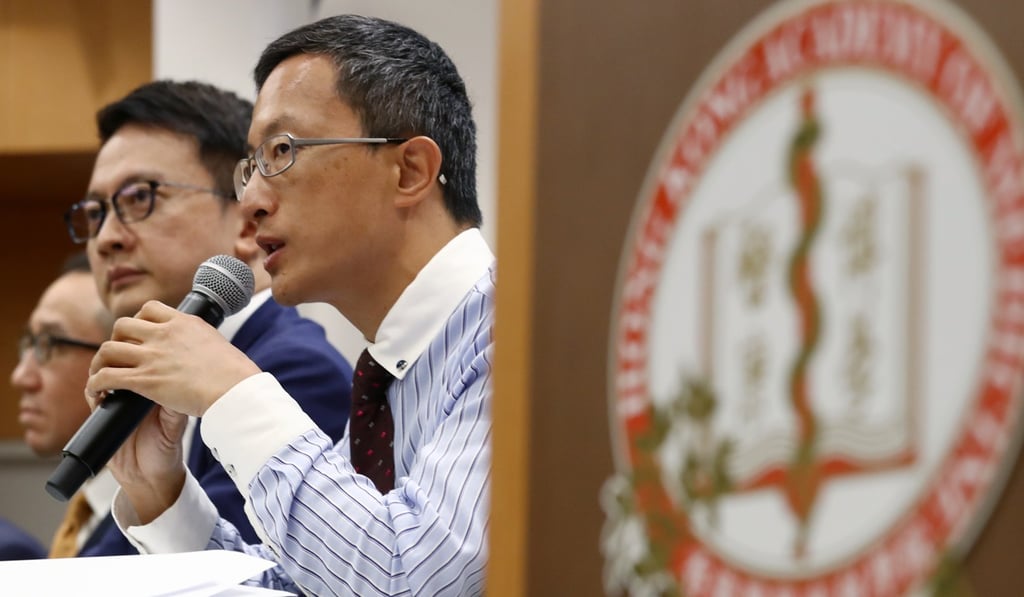Patients waiting more than three years for specialist care in Hong Kong, as doctors call for new department to manage public-private sector relationship
- Association of Private Medical Specialists wants government to create new medical aid department
- Survey of 200 professionals finds poor working conditions and long hours causing doctors to quit Hospital Authority

Private doctors want the government to create a new department to manage their cooperation with public hospitals and shorten waiting times for specialists services, which for some patients in Hong Kong is now more than three years.
A study conducted last month by the Association of Private Medical Specialists of Hong Kong also highlighted the frustration doctors faced in the public sector, citing an unsatisfactory work environment and lack of time as reasons for leaving the Hospital Authority.
According to Dr Samuel Kwok Po-yin, the association’s president, hospital congestion, long working hours and a lack of doctors all contributed to problems faced by the medical sector in the city.
“The biggest problem in the medical sector is the waiting time for stable new case bookings at specialist outpatient clinics,” Kwok said.

According to data the authority released in March, in the worst-case scenario, patients in a stable condition had to wait up to 181 weeks, or more than 3½ years, for their first appointment at specialist outpatient clinics in Hong Kong Island West.